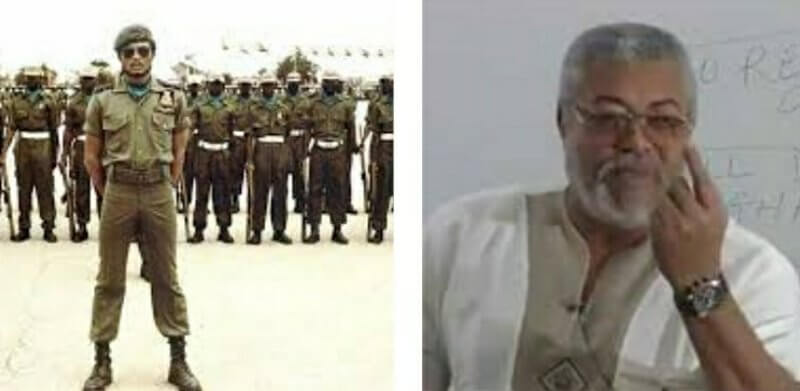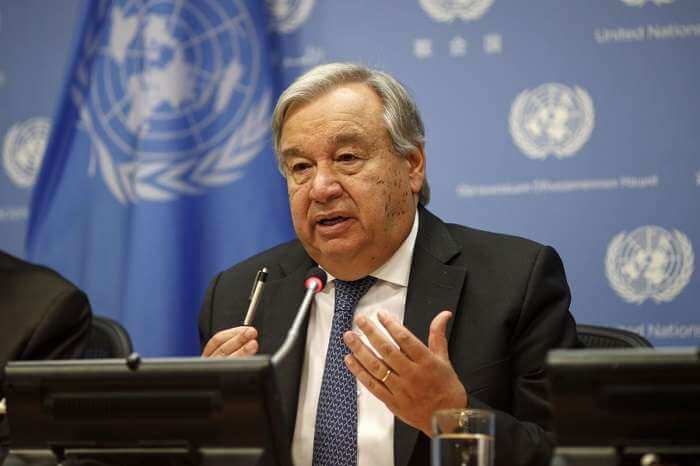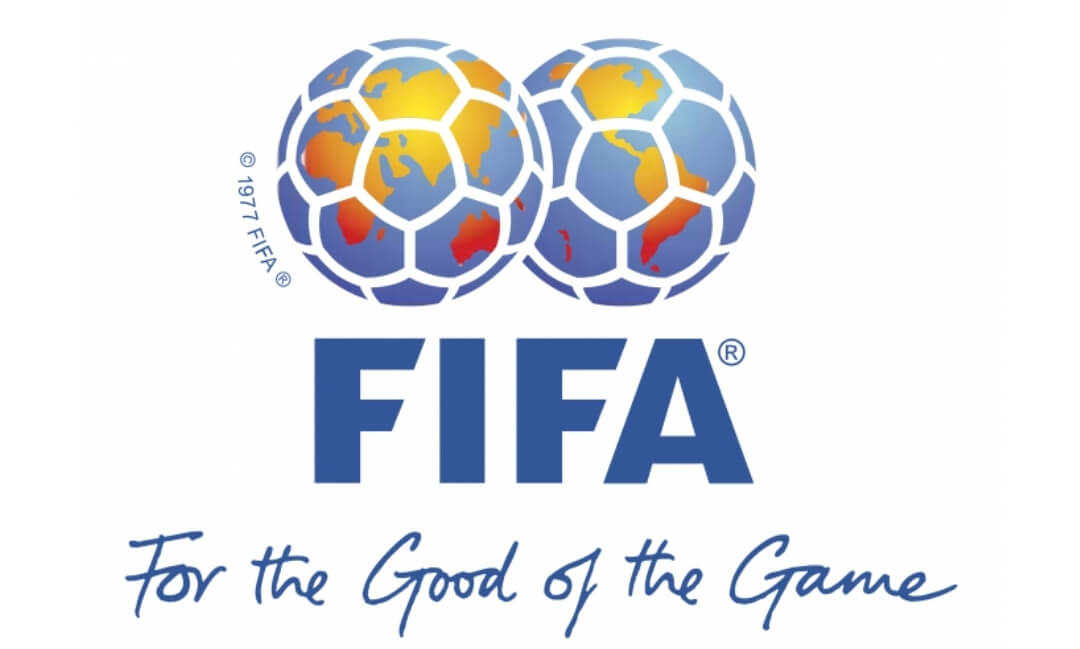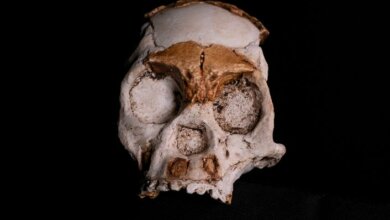
Last Sunday, December 31, 2017, saw another commemorative event of the Jerry Rawlings revolution that culminated into Ghana’s democratic or civilian rule of the Third Republican Constitution. The occasion also marked 36 years of the former president and military leader’s take-over in Ghana.
Thirty-six years ago, Ghana Broadcasting Corporation (GBC) TV and Radio the only state networks at the time announced to the whole world that then flight lieutenant Jerry John Rawlings had toppled the two-and- half-year-rule of the Hilla-Limann-PNP-government. Rawlings returned the country to constitutional rule after ruling the country for 112 days. However, it didn’t last long the maverick would bounce back on December 31, 1981.

Many political chieftains viewed the revolution as a political blight and uncalled for. Why? The Third Republic had been jolted and the West-African nation had once again taken two steps back if you like. And that happened to be Rawlings’s third insurgency in a span of about three years.
Jerry Rawlings first insurgency was the 15th May uprising in 1979 that got him arrested and tortured by then Gen. Frederick Akuffo Supreme Military Council (SMC II) administration. On June 4, 1979, there erupted perhaps the worst bloody and gruesome coup d’état in Ghana’s political history. Ghana witnessed her first firing squad (human execution) at the Teshie Military range near the Military Academy in the south-eastern side of Accra in June 1979. The incident occurred three weeks after Rawlings overthrew Gen. Akuffo’s government.
Six senior military officers including the nation’s former head of state Fred Akuffo were executed by the Armed Forces Revolutionary Council (AFRC). Generals Akwasi Amankwa Afrifa a former head of state from 1966-69 and Ignatius Kutu Acheampong (1972-1978) were also executed. Ten days before their execution some top military officers were put to death by firing squad.
So in December 1981 when the news broke out of another Rawlings revolution, it sent shivers down the spine of many across Ghana. There was palpable fear. There were also extrajudicial killings. The abduction and slain of three High Court judges on Wednesday, June 30, 1982, remains a dark spot in Ghana’s political history. This followed the execution of three High Court Judges, namely Mr. Justice Fred Poku Sarkodie, Mrs. Justice Cecilia Koranteng-Addo and Mr. Justice Kwadwo Agyei-Agyapong and a retired army officer Major Sam Acquah.
Was the Jerry Rawlings December 31 Revolution necessary?
That’s a debatable issue. And it’d largely depend on which side of the political divide one stands. For example, some opponents of the revolution argue that the Limann administration could have repositioned Ghana’s economy and strengthens the nation’s democratic dispensation at the time had Rawlings given the government opportunity to complete its tenure. They buttress their argument on the fact that none of the ministers or functionaries that served in the Limann-government was found guilty of wrongdoing or caused financial loss to the state.
[Related: Akufo-Addo sworn in as President of Ghana]
But the man who led the revolution says the rot was too much and too many types of loot were going on.
“The same group of people and their puppets oversaw an economy that retrogressively provided limited opportunities for an increasing population. The price of goods and services were escalating in an unprecedented manner by 1981. The economic indicators were all negative at the time,” Mr. Rawlings reiterated this in Ho the Volta Regional capital.
“For those who have forgotten and have a veneer obscuring their view, corruption had its own local terminology, Kalabule. In 1982 at the advent of the revolution, Ghanaians had to queue for essential commodities such as bread and maize in order to make ends meet. This did not break down the resolve of the people. The young and able-bodied ones, mostly drawn from the universities traveled to the hinterlands to help cart cocoa onto trucks and trains to the ports for export. The desire to die for mother Ghana was the driving force behind the revolution. It was a re-birth of the spirit of patriotism – the love of one’s country.”
Indeed the good news of that revolution wouldn’t be known until 11 years’ time. In 1992 Mr. Rawlings resigned from the Armed Forces and founded the National Democratic Congress and became the first president of the Fourth Republic. Out of that revolt and 11 years of ruling Ghana then Chairman Rawlings returned the nation into constitutional rule-The Fourth Republic which has since witnessed the election of presidents four Johns – John Rawlings, John Kufuor, John Mills and John Mahama including sitting president Akufo-Addo.
Calls for a new revolution: how would that look like?
I’ve said it before and I will repeat it. NDC without Rawlings lacks the mettle to fight.
One year after the party’s election huge loss it appears the very stone the builders rejected is now much-sought-after. This was evident in Ho. President Rawlings reminded the NDC about the tenets that gave birth to June 4 and December 31 Revolutions including the founding of NDC.
“..I did indicate a year ago that the loss at the 2016 elections was self-inflicted. The ideals of probity, accountability, integrity and social justice did not manifest itself in our policies and conduct at all times. Some of our own comrades chose to be impervious to reality and we experienced a crushing defeat that haunts many till today, Mr. Jerry Rawlings said.
“The time has come for the rhetoric to stop.
The time has come for the men and women who believe in the ideals of June 4, 31st December and the NDC to rise up. The time has come for a new revolution. This is not about Jerry Rawlings. This is about you and generations to come. Rawlings is not a faction and will never be. The ideals you believe in and for which I stand for and represent, are ideals that will stand the test of time no matter how long some choose to distort it with transient economic might. You have to be strong, steadfast and politically robust. You have to rise up to be counted just as our dynamic women, selfless youth, workers, farmers, petty traders, comrades did for us three decades ago. Sadly we ended up disrespecting and denigrating these people who knew nothing but to offer themselves to the party and country.”
The former president also emphasized that:
“The NDC needs men and women at its various Executive positions who have the strength of character to boldly lead the party and ensure that they have the ability to rein in members of their own government when in power. Our party structure was weak, abused and ignored in the immediate past and when change comes that change must be one that carries with it the power and will of the people. If we do not allow that revolutionary change but allow materialism and money politics to dictate our choices, then we will stay in the political abyss for a considerable period.”
Indeed his tone of language suggests the party cannot do without him. But above all, it depicts one who now has his grip on the NDC. He even called them names like greenhorns and latter-day-saints.
“Some latter-day party officials have now made it their chore to denigrate me for speaking loudly and forcefully about the wrongs in the NDC when the party was in power. Many of these political novices, eager to please their paymasters may be oblivious to the countless times my counsel was treated with contempt. I cannot lay claim to the position of party founder and spend time criticizing another party or institution when my house is burning. Removing the log in my eye is the only way to legitimize any right to expose the speck in another’s.
Those ideals are the guiding force that will strengthen and unify the party. Let us rebuild the party around these principles and values. Thereafter those who emerge at all levels of leadership will get the collective support of all,” Mr. Rawlings admonished.
According to Wikipedia, Jerry John Rawlings (born 22 June 1947) is a former head of state and president of Ghana. Rawlings initially came to power in Ghana as a flight lieutenant of the Ghana Air Force following a coup d’étatin 1979 and, after initially handing power over to a civilian government, took back control of the country on 31 December 1981 as the Chairman of the Provisional National Defence Council. In 1992 Rawlings resigned from the Armed Forces, founded the National Democratic Congressand became the first president of the Fourth Republic. He was re-elected in 1996 for a further four years. He currently serves as the African Union envoy to Somalia.
Source: Gordon Offin-Amaniampong is a Ghanaian born US-based seasoned writer
Oral Ofori is Founder and Publisher at www.TheAfricanDream.net, a digital storyteller and producer, and also an information and research consultant.



